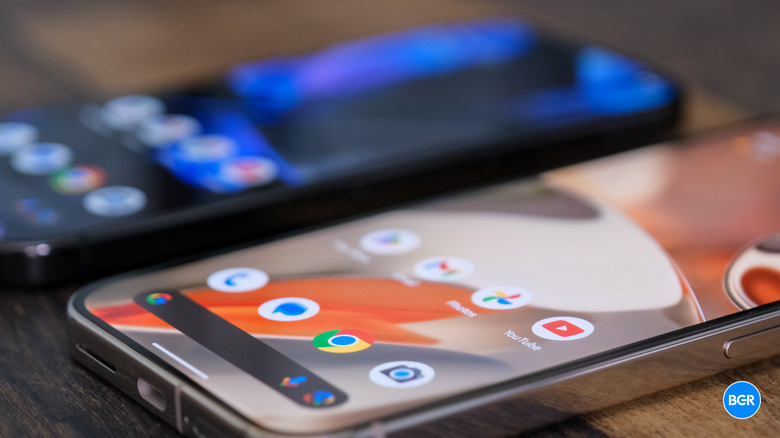Android 16's Early Release Date Is A Good Sign For The Pixel 10
Google did something unexpected this year when it comes to its Pixel phones and the latest version of Android. The Pixel 9 series came out in August, some two months before the usual mid-October release window that Google gave previous Pixel models. Unlike those devices, the Pixel 9 still ran the one-year-old Android OS rather than the newest release. Android 15 launched only a few days ago for the Pixel 9 phones.
It turned out to be a great decision. Google launched AI phones before Apple could unveil the iPhone 16 and release the first Apple Intelligence features. Google made the Pixel 9 event all about AI, making it clear that most Gemini features shown during the announcement would be available immediately. Android 15 took a backseat to that, as it seemed less important.
That gamble paid off, with the Pixel 9 phones selling much better than any previous series. That's according to all sorts of recent estimates, though actual figures aren't available.
More importantly, Google seems committed to a new schedule for Android starting next year. According to Google, Android 16 should be released in the second quarter of 2025, with an actual release date having already leaked. This suggests the Pixel 10 series is likely coming out next summer rather than October.
Google teased in a blog post a few days ago that it plans two Android releases in 2025. The "major SDK release," which can only be Android 16, would drop in the second quarter of 2025, therefore, by June 2025. A minor SDK release would follow in the fourth quarter of the year.
Google moved the release of Android by a quarter:
The Q2 major release will be the only release in 2025 to include behavior changes that can affect apps. We're planning the major release for Q2 rather than Q3 to better align with the schedule of device launches across our ecosystem, so more devices can get the major release of Android sooner.
Google plans "more frequent SDK releases" to "help to drive faster innovation in apps and devices, with higher stability and polish for users and developers." I bet Gemini AI is one reason Google is making this big change to its Android schedule. AI will continue to be Google's main focus, and the Pixel phones will be its main hardware for Gemini. It makes sense to align the Android releases to that schedule.
Google's "strong demand" for Pixel 9 seems like an understatement!
- "Highest-ever" quarterly sales 📈
- 20% YoY growth in the US ⬆️
- Pixels now make up over 14% of tracked traffic in US 🤯
- Pixel 9 Pro XL joins top 10 best-selling premium phones in US 🔟Absolutely wild!! pic.twitter.com/R5nbudXx1z
— Ben Schoon (@NexusBen) November 5, 2024
One good thing about the Pixel 9 launching with Android 14 instead of Android 15 is that it ran more polished software than the first public release of a next-gen OS. With Android 16 hitting AOSP by the end of June 2025, Google will have plenty of time to fix bugs before the Pixel 10 models drop in August. I'm assuming Google would want to release Pixel phones in August rather than October.
This release schedule also benefits other Android vendors. They might update their flagships before the end of the year in the same year a new Android version comes out. Look at what's happening with Android 15 right now. The Galaxy S24 phones won't get it until early 2025, after the Galaxy S25 release.
The new schedule implies that the first Android 16 beta release for developers should drop much earlier than before. I wouldn't be surprised if it happens quite early in 2025.
What's interesting is that Android Headlines already obtained a purported AOSP release date for Android 16. It'll be June 3rd, 2025 when Android 16 will head to AOSP and roll out to Pixel 9 and other devices.
If the date is accurate, Google is very committed to this particular schedule. It's unclear why it would happen in early June. With I/O 2025 likely happening in May, we'll discover more details about Android 16 at the event. I'll also note that Apple will unveil iOS 19 sometime in early June during the upcoming WWDC 2025 event. That's when it'll make the first iOS 19 beta available to developers.
Finally, remember that software update delays can always happen, regardless of what leaks say.
